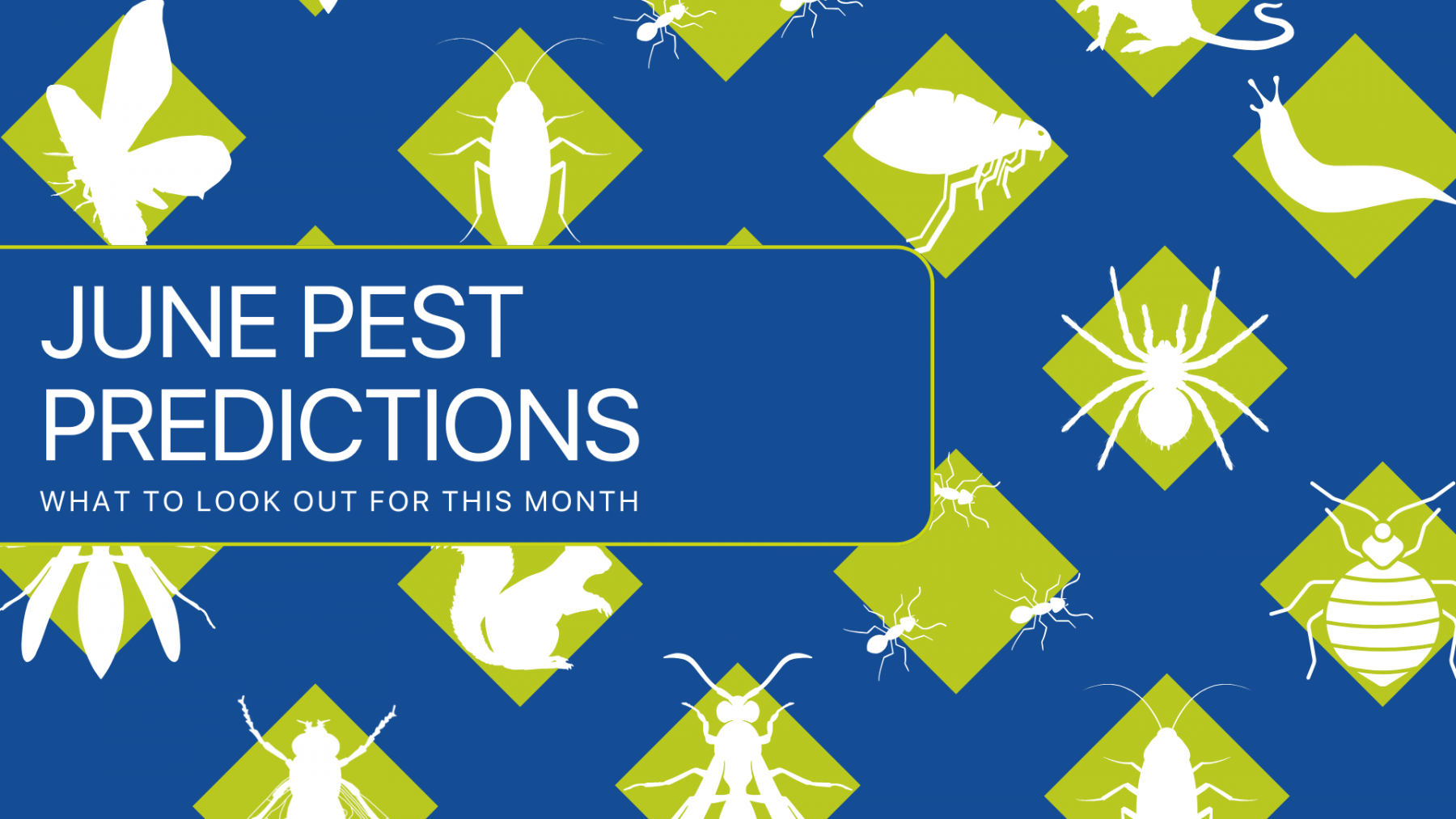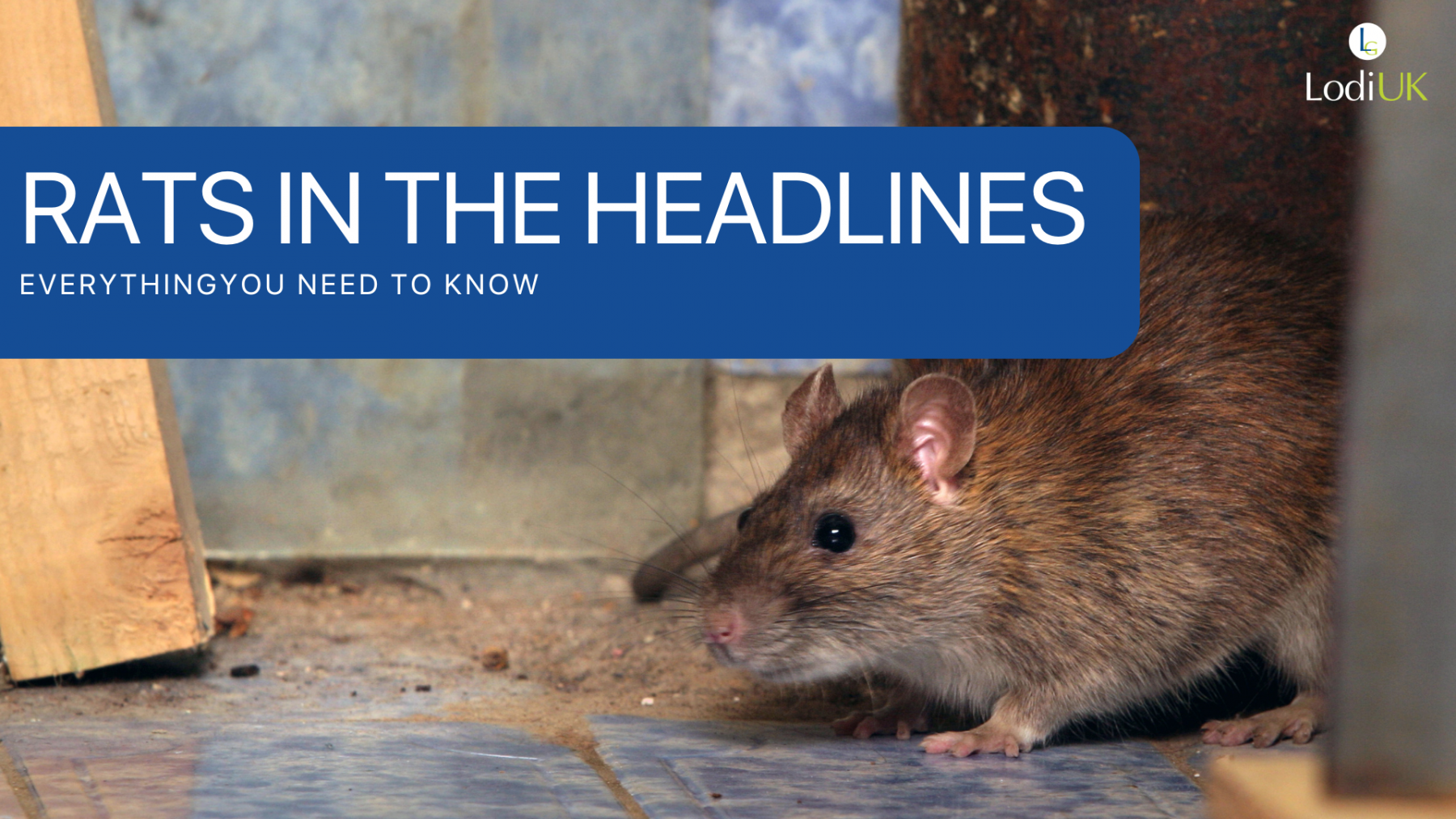
The warm, sunny days of June bring plenty of reasons to spend time outdoors—but unfortunately, they also signal a surge in pest activity. With rising temperatures and food & shelter at an abundance, pests of all shapes and sizes become more active in and around our homes. Whether it’s buzzing in the garden, scratching in the attic, or scuttling across the kitchen floor, unwanted guests can quickly make their presence known. In this month’s round-up, we take a look at which pests are likely to cause trouble this June, how to spot the early signs, and what you can do to help keep them out without relying on herbal myths or ineffective DIY tricks.
Flying Menaces
One of the biggest summertime nuisances comes from flying pests, and June is the time when activity really ramps up.
Wasps are often the most feared of the flying invaders. This month, queen wasps are actively building nests in sheltered spots such as lofts, sheds, or under roof eaves. Their growing colonies can become aggressive if disturbed, and wasp stings are not only painful but can cause allergic reactions in some people. By late summer, a single nest can house up to 5,000 wasps. You might spot a steady stream of wasps flying in and out of the same hole in a wall, roof or hear them buzzing near wooden structures.
To reduce the risk of attracting wasps, make sure bins are sealed, clean up food and drink spills promptly—especially outdoors—and install insect mesh over vents and windows. You may have heard the tip about hanging a paper bag to trick wasps into thinking there’s already a nest nearby, but sadly, this myth doesn’t hold up. Wasps are clever and rarely fooled by decoys.
Flies are another airborne invader that can quickly become overwhelming. Whether it’s house flies buzzing around your kitchen, cluster flies in your loft or fruit flies hovering over ripening bananas, these pests breed rapidly in the warmer months. Flies are known for spreading bacteria as they land on food and surfaces, making them more than just an irritation. A single female housefly can lay up to 500 eggs in her short lifetime.
If you notice clusters of flies at windows, hear buzzing sounds, or spot tiny white maggots near bins or drains, you may have a problem. You can help keep them away by keeping bins clean and tightly sealed, clearing drains, and storing food properly. Some people swear by bowls of vinegar to catch fruit flies, and while it may trap a few, it won’t eliminate the problem entirely.
Moths are menaces, causing damage both in your wardrobe, closet and even your pantry. While adult moths don’t do much harm themselves, their larvae can be a big problem. Clothes moths chew through natural fibres like wool, silk, and cotton, while pantry moths target dried food like flour and cereal. Signs of a moth problem include holes in clothing, webbing in food cupboards, and small beige moths fluttering about.
To prevent them, regularly vacuum your home, wash clothes before storing them, and keep dried goods in airtight containers. You may have heard that cedarwood repels moths, but this is mostly a myth. Its scent might mask odours short-term, but it won’t stop an infestation.
Crawling Trouble
As temperatures climb, crawling pests start becoming more active indoors, particularly ants, bed bugs, and cockroaches.
Ants are a common sight in June, as they begin foraging for food. Black garden ants are known to invade kitchens, drawn in by sugary leftovers. Once a single ant finds a food source, it leaves behind a pheromone trail, encouraging hundreds more to follow. You may spot a trail of ants near doorways or windows, especially around sweet treats or crumbs.
The best way to deter them is by wiping down surfaces regularly, storing food securely, and sealing up any entry points around your home. A common myth claims that drawing a chalk line on the ground will stop ants from crossing it—but this rarely works for long. Determined ants will simply find another route.
Bed Bugs are less visible, but no less problematic. With summer holidays kicking off, bed bugs often hitch a ride home in luggage from hotels or public transport. These tiny pests feed on human blood, usually while you sleep, and their bites can cause itchiness and discomfort. Bed bugs can survive for months without feeding, making them particularly hard to shift once they’re in your home. Signs include small dark spots on bedding, shed skins, bites in a line or cluster, often around the ankles or arms.
To reduce the risk, avoid putting your luggage on the bed when travelling and wash clothes on a hot cycle when you get home. Contrary to popular belief, bed bugs are not a sign of a dirty house. They’re just as happy in a spotless home as a cluttered one.
Cockroaches, while not as common, they are a serious pest when they do appear. These insects prefer dark, warm, and damp environments, making kitchens, bathrooms, and boiler cupboards ideal spots. Cockroaches spread bacteria and can trigger asthma and allergies in children. You might notice droppings that resemble coffee grounds, an unpleasant musty smell, or smear marks on walls and floors.
To help prevent cockroaches, make sure you fix leaky pipes, ventilate damp areas, and clean behind appliances regularly. Many believe that cockroaches only come out at night—but if you’re seeing them during the day, it’s usually a sign of a larger infestation.
Scurrying Sounds
June is also a time when rodents and other small mammals like squirrels become more active and sometimes, more daring.
Rats and Mice are especially attracted to outdoor eating areas, waste bins, compost bins, and warm hiding places. They’re more than just a nuisance as they can cause damage by gnawing on wires and woodwork and are known to spread disease through droppings and urine. Rats’ teeth never stop growing, which is why they constantly chew. You might spot droppings, gnaw marks, greasy rub marks along walls, tail swooshes and pathways or hear scratching in lofts or under floorboards.
To keep rodents at bay, it’s important to seal up any holes or gaps larger than a 5p coin, tidy gardens, and avoid leaving pet food out overnight. Some think having a cat will stop rats, but the truth is, unless your cat is a keen hunter, rodents often carry on undisturbed.
Squirrels, especially grey squirrels, can become a real issue if they decide to nest in your loft. Although they might look cute, they are capable of causing serious damage to insulation, cables, and even wooden beams. In fact, they’ve been known to cause house fires by chewing through electrical wires. Grey squirrels are classed as an invasive species in the UK, and once they move in, they don’t leave easily. Signs of a squirrel problem include scratching sounds in the attic during the day, chewed roof timbers, or nests made from leaves and twigs.
Trimming trees back from the house and blocking potential entry points with metal mesh can help stop them before they move in. If you’ve heard that removing one squirrel will solve the issue, think again! Without proper proofing, others will likely take their place.
Creeping & Lurking
Finally, the beginning of the UK summer brings a range of pests that creep and lurk in hidden corners, including fleas, slugs, and spiders.
Fleas become more common in summer, especially in homes with pets. While their bites may only cause mild irritation, fleas can quickly spread from pet beds into carpets and furniture. These tiny jumpers can leap more than 100 times their body length and multiply fast. If your pets are scratching more than usual, or you notice tiny black specks (flea dirt) on their bedding, it’s time to act.
Regularly vacuum your home and wash pet bedding on a hot wash to help prevent infestations. One common myth is that only dirty pets get fleas but the truth is, even the cleanest animals can carry them indoors from parks or other animals.
Slugs are another unwelcome guest, especially in damp weather. They feast on garden plants but will also sneak indoors, leaving slimy trails across floors and carpets. A single slug can lay hundreds of eggs each year, making them tough to control. You might spot chewed leaves, slug trails, or the slugs themselves hiding under pots or garden debris.
You can help reduce their numbers by removing hiding places and using copper tape around pots. Beer traps, often mentioned as a homemade fix, may catch a few slugs but they won’t stop an infestation.
Last but not least, we come to Spiders. As they begin looking for food or nesting spots, you’ll often notice more of them in quiet corners, hard to reach ceilings, under furniture, or hiding in cupboards. While most UK spiders are harmless, many people find them unsettling. House spiders can live for years, and they often sneak inside through tiny cracks in walls or windows. You may notice more webs or see the occasional eight-legged visitor scuttling across the carpet.
Vacuuming regularly, especially around skirting boards and behind furniture, is the best way to keep them away. And no, the old trick of leaving conkers around the house doesn’t actually work - there’s no scientific proof that conkers deter spiders.
So, there you have it - June’s pest forecast in full. While the sun may bring the best of British summer, it also awakens all kinds of creepy crawlies. By spotting the signs early and sticking to practical prevention methods, you can keep your home a pest-free zone all month long.





